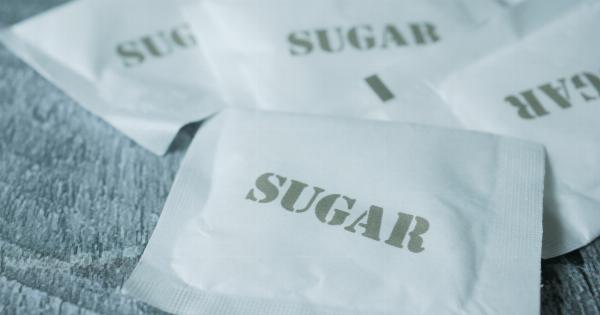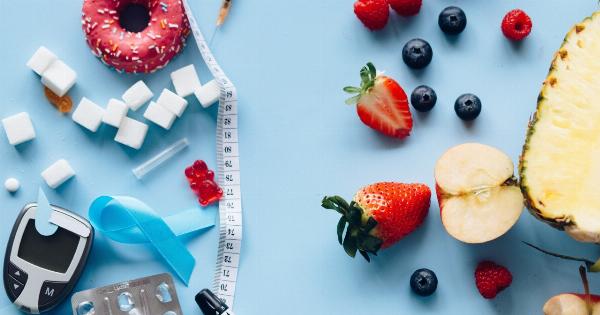Sugar and sweeteners are an essential part of our diet, but the excessive consumption of sugar can have negative health consequences, especially when it comes to individuals with diabetes.
For people living with diabetes, it is crucial to find the right sweetener that can help manage blood glucose levels. The International Sweetember Association has identified the ideal sweeteners for glucose control that are safe and effective for people with diabetes.
What is the International Sweetember Association?
The International Sweetember Association (ISA) is an organization focused on promoting the use of low-calorie sweeteners and sugar substitutes.
It aims to provide accurate, evidence-based information about these sweeteners, including their benefits and safety.
The ISA is made up of renowned scientists, researchers, and healthcare professionals from across the globe who collaborate to provide science-based evidence on sugar substitutes.
The organization also provides support for research and innovation in sweeteners and aims to educate the public on the benefits and use of low-calorie sweeteners.
The Ideal Sweeteners for Glucose Control
For people with diabetes, it is essential to monitor their blood glucose levels and consume foods low in sugar. The ideal sweeteners for glucose control are low-calorie sweeteners that do not raise blood glucose levels significantly.
The International Sweetember Association recommends the following sweeteners:.
Stevia
Stevia is a natural sweetener derived from the leaves of the Stevia rebaudiana plant. It is about 200-300 times sweeter than sugar and has zero calories. Stevia has a low glycemic index (GI), meaning it does not raise blood glucose levels significantly.
It is an excellent option for people with diabetes looking for a natural sugar substitute.
Aspartame
Aspartame is an artificial sweetener made from two amino acids. It is about 200 times sweeter than sugar and has a negligible effect on blood sugar levels.
Aspartame is a common ingredient in many sugar-free products and is a good option for people with diabetes seeking a zero-calorie alternative to sugar.
Sucralose
Sucralose is an artificial sweetener made from sugar, but it does not raise blood sugar levels. It is about 600 times sweeter than sugar and has zero calories.
Sucralose is a common ingredient in many sugar-free foods and beverages, and it is an excellent alternative for people with diabetes looking for a sweetener that does not have an impact on blood sugar levels.
Erythritol
Erythritol is a natural sweetener derived from fruits and vegetables. It is about 60-70% as sweet as sugar and has almost no effect on blood sugar levels.
Erythritol has zero calories and is a popular sugar substitute in many low-carb and sugar-free products. It is an excellent alternative for people with diabetes looking for a natural sugar substitute.
Xylitol
Xylitol is a natural sugar alcohol found in fruits and vegetables. It is about 1:1 as sweet as sugar and has a minimal effect on blood sugar levels.
Xylitol has about 2.4 calories per gram and is an excellent alternative for people with diabetes who want to cut down on sugar intake without sacrificing the sweetness of sugar.
Maltitol
Maltitol is a sugar alcohol that is about 90% as sweet as sugar. It has a low glycemic index and a minimal effect on blood sugar levels. Maltitol has about 2-3 calories per gram and is commonly used in sugar-free candies and other confectionery products.
It is an excellent option for people with diabetes who want to indulge in sweet treats that do not raise blood sugar levels.
Lactitol
Lactitol is a sugar alcohol similar to maltitol but with fewer calories. It is about 30-40% as sweet as sugar and has a low glycemic index.
Lactitol is popular in sugar-free chocolate and dairy products and is a great option for people with diabetes who want to indulge their sweet tooth without raising blood glucose levels significantly.
Isomalt
Isomalt is a sugar alcohol derived from beets. It is about 55-65% as sweet as sugar and has a low glycemic index. Isomalt has about 2.4 calories per gram and is popular in sugar-free candies and chewing gum.
It is an excellent option for people with diabetes who want to satisfy their sweet tooth without consuming excessive amounts of sugar.
Tagatose
Tagatose is a natural sweetener derived from lactose. It is about as sweet as sugar and has a low glycemic index. Tagatose has about 1.5 calories per gram and is an ideal option for people with diabetes who want to consume foods with less sugar.
Allulose
Allulose is a natural sweetener derived from fruits and vegetables. It is about 70% as sweet as sugar and has minimal calories.
Allulose has a negligible impact on blood glucose levels and is an excellent option for people with diabetes who want a natural sugar substitute.
Conclusion
The International Sweetember Association recommends using low-calorie sweeteners as an ideal option for people with diabetes who want to manage glucose levels.
The above-listed sweeteners are safe and effective for people with diabetes when consumed in moderation.































